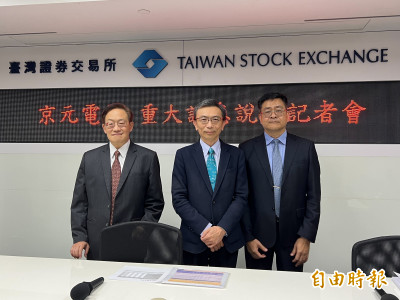《TAIPEI TIMES》 ‘One country, two systems’ not acceptable, Lai says
By Chen Wei-han / Staff reporter
Taiwanese will not accept the “one country, two systems” framework that implicitly underlines the so-called “1992 consensus,” Tainan Mayor William Lai (賴清德) said yesterday, as debate continued over whether his comment on building an affinity with China marked a softening of his pro-independence views.
“The ‘1992 consensus’ is not the problem. The problem is the final ‘one country, two systems.’ Abolishing the Democratic Progressive Party’s [DPP] charter is not the problem, either. The problem is whether you accept the ‘1992 consensus,’” Lai told a Taiwanese-American audience in the US state of Maryland on Sunday.
“Accepting the ‘1992 consensus’ is not the problem, either. The problem lies with the ‘one country, two systems’ framework. Taiwanese cannot possibly accept the ‘1992 consensus’ [which would relegate Taiwan to] the same status as Macau and Hong Kong,” he said.
Chinese President Xi Jinping (習近平) has said that the “one country, two systems” framework would be applied to Taiwan, which would relegate Taiwan to the status of a colony, Lai said.
Lai was expounding on his comments of “building an affinity with China while loving Taiwan,” which some have interpreted as a change in his staunchly pro-independence views.
“Taiwan and China should replace conflict with dialogue and communication with containment. The main gist of building an affinity with China while loving Taiwan is to make Taiwan the center and extend the hand of friendship to China to reach an understanding, forgiveness, reconciliation and peaceful development through interaction,” Lai said.
Lai said his narrative is different from the “anti-China” narrative of former presidents Chiang Kai-shek (蔣介石) and Chiang Ching-kuo (蔣經國), or former president Ma Ying-jeou’s (馬英九) “leaning toward China.”
It is also different from former president Lee Teng-hui’s (李登輝) “state-to-state” model or former president Chen Shui-bian’s (陳水扁) “one country on each side,” which Lai said did not stress relations with China while giving priority to Taiwan.
Lai’s comments have received considerable attention as the senior DPP member is considered a strong contender for the 2020 presidential election.
The Presidential Office and the DPP yesterday said that Lai had been quoted out of context.
The Presidential Office said the media had edited the mayor’s comments and claimed that Lai would propose accepting the “1992 consensus” or abolish the DPP’s independence clause, which was not Lai’s intention.
The DPP said that Lai was not proposing abolishing the DPP charter’s independence clause, but declined to comment further.
It had earlier said that Lai’s narrative was in line with the DPP’s China policy, which seeks to establish friendly relations with Beijing.
It also said that DPP Legislator Hsu Chih-chieh (許智傑) comments were his personal opinions.
Hsu said a “conditional 1992 consensus” that respects Taiwan’s democracy and autonomy might be an alternative way to reach an “ambiguous balance” in cross-strait relations to break the current stalemate.
The DPP said it has consistently asserted that cross-strait interactions should not be governed by any preconditions, and Beijing should respect the existence of the Republic of China and Taiwanese belief in democracy.
Ma’s spokeswoman, Hsu Chiao-hsin (徐巧芯), yesterday said Lai is very unfamiliar with cross-strait relations, adding that the mayor has made many erroneous statements about the relationship between the two sides of the Taiwan Strait.
“He is making a fool of himself. It is as if he is misreading the name Feng Jing (馮京) as Ma Liang (馬涼). I do not know what he is driving at,” Hsu said, alluding to the Chinese idiom describing a case of mistaken identity as the character feng (馮) looks similar to ma (馬), and jing (京) looks similar to liang (涼).
The so-called “1992 consensus,” a term former Mainland Affairs Council chairman Su Chi (蘇起) in 2006 admitted making up in 2000, refers to a tacit understanding between the Chinese Nationalist Party (KMT) and the Chinese government that both sides of the Strait acknowledge there is “one China,” with each side having its own interpretation of what “China” means.
Additional reporting by Lin Liang-sheng
新聞來源:TAIPEI TIMES



















